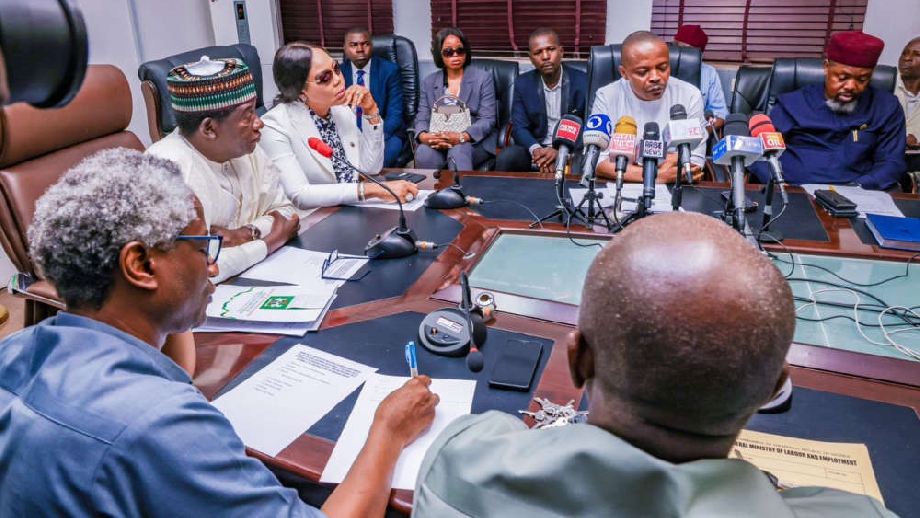
The Nigerian government and organized labor are seemingly in for a prolonged battle as both sides have refused to give in to the pleas and demands of each other over the national minimum wage.
On Friday, the government proposed a N62,000 annual minimum wage against labor’s N250,000 demand.
And on Monday morning, President Bola Tinubu’s Special Adviser on Information and Strategy, Bayo Onanuga, said that organized labor’s demand was impractical.
“The amount they’re still (demanding) is unrealistic,” Mr. Onanuga said on the Morning Crossfire program on Nigeria Info 99.3 FM Lagos.
“It cannot be paid by the federal government. It cannot be paid by the private sector. All of them will shut down.
“And the governors have said that they cannot pay the N60,000 that the private sector and the federal government were offering before.
“That’s where we are today. I think that labor should reconsider its position.”
Thirty-five States Cannot Survive Labor's Wage Demand - Onanuga
Mr. Onanuga told Nigeria Info that the federal government would be burdened with a N5 trillion annual wage bill if it gives in to labor’s demand.
“And if you look at the budget this year: N28 trillion. And you are paying N5 trillion on wages alone; what are you going to spend on the other things that the government does?” he queried.
The presidential spokesman said the burden would be worse on Nigeria’s 36 states whose governors have repeatedly argued against last month’s increase in the national minimum wage to N60,000.
“The sub-nationals (states) are saying, ‘We don’t have the money,’” he said.
“In fact, I have the statistics that show that many of those states borrow money to survive.
“Every month, they have to borrow. If you juxtapose their recurrent and capital expenditure with the money they get from the federal government and internal revenue, most of them are in deficit, including Lagos State, which we have in our head that Lagos is rich.”
Private companies employing more than 25 people would constitutionally, also, have to pay the wage, Mr. Onanuga added.
Negotiation for Agreeable Minimum Wage
The government and organized labor have been negotiating a minimum wage review for months.
In April, the Nigeria Labour Congress (NLC) and the Trade Union Congress (TUC), Nigeria’s largest workers’ unions demanded N615,000 as the monthly minimum pay.
This is a nearly 2,000 percent increase from the current N30,000 minimum wage.
The unions argued that inflation, the depreciation of the naira, and the removal of government subsidies on petrol and electricity have made it impossible to live on N30,000.
The unions later settled on N497,000 while the government proposed N60,000, leading to the unions embarking on a strike on Monday 3 June.
Workers shut down the national power grid, stopped planes from taking off or landing at the country’s domestic airports, forced banks to close, and stayed off government offices for the next two days.
An assurance from the government that it was willing to pay “above N60,000” brought labor leaders to the negotiation table and got workers back to their duty posts.
Last Friday 7 June, the government disclosed it could pay N62,000 but labour leaders said they could go on strike again if the government goes below N250,000.
Mr. Onanuga has, however, argued that the N62,000 minimum wage was decided by the government and the organized private sector, two legs of a tripartite committee that has been negotiating.
Organized labor is the lone voice in the negotiations.


